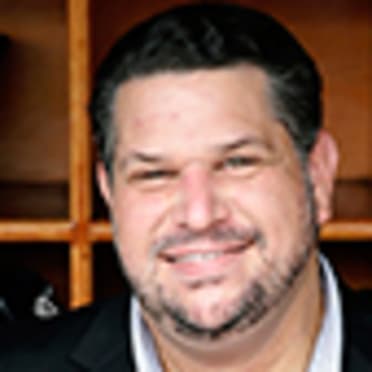Union makes proposal on second day of Florida talks
A second consecutive day of talks between Major League Baseball and the MLB Players Association brought about a new proposal from the union, albeit one with minimal movement.
The two sides met again on Wednesday in Jupiter, Fla., as they continue to negotiate a new collective bargaining agreement.
Minimum salary was among the changes in the MLBPA’s Tuesday proposal, though the union asked for more money than it had in its most recent offer. Tuesday’s proposal included a $775,000 salary for pre-arbitration players in 2022, with that figure rising $30,000 in each of the four subsequent years. The MLBPA’s prior proposal included the same 2022 salary, with an annual $25,000 bump between 2023-2026.
This marked the third straight proposal in which the MLBPA asked for more in at least one area than it had the previous time. In its prior proposal, the union boosted its pre-arbitration bonus pool request from $100 million to $115 million, and prior to that, the MLBPA said that in addition to MLB’s plan to fight service time manipulation, it also wanted to include its own plan in a deal, too.
Among the other changes in the players’ latest offer was a slight reduction in their Super 2 eligibility proposal, reducing the previous ask of 80 percent of players in the two-plus service class to 75 percent. The current system allows the top 22 percent of players with between two and three years of service time to become arbitration eligible as Super 2 players.
MLB has been adamant for months that any change in the Super 2 system is a non-starter for the owners.
The MLBPA also lowered its Draft lottery proposal from the top eight picks to seven. MLB had offered a lottery featuring the first four selections on Monday, matching the system used by the NBA. (The NHL only awards its top two draft picks via lottery.)
MLB has set a February 28 deadline for a new deal to be worked out in order to assure that the regular season opens as scheduled on March 31. With that deadline rapidly approaching, the league once again suggested bringing in a mediator to assist with the process, but the MLBPA continued to reject the idea.
League officials were working on a response to what one source called “a bad proposal.”
The league’s most recent proposal on minimum salaries included two systems from which the MLBPA could choose:
In the first, players would receive a single minimum salary of $630,000 in 2022, which would mark an increase more than twice as large as the $27,500 bump the players received in the first year of the previous CBA. Under this system, the minimum salary would not be capped, while the $59,500 increase from 2021 to 2022 would nearly match the increase ($63,000) over the five years of the entire prior CBA.
The league’s other proposal featured a tiered salary scale that would pay $615,000 for players with 0-1 years of service time, $650,000 for players with 1-2 years of service time and $725,000 for players with 2-3 years of service time – the latter of which was an increase of $15,000 from the league’s prior proposal. Compared to the current minimum salary of $570,500, players would receive a 16% raise ($278,500) over their first three years of service under this plan – and that’s not factoring in a pre-arbitration bonus pool.
The MLBPA’s Tuesday proposal did not include any changes to its prior offers for a $115 million pre-arbitration bonus pool, nor did it move off the union’s $245 million competitive balance tax proposal – a figure the union has not moved on since November.
MLB has offered a $20 million bonus pool to reward the top 30 performers in the pre-arbitration class, as well as a CBT that would start at $214 million, rising to $222 million by 2026. Under the league’s proposal, only teams surpassing the $234 million threshold would be subject to Draft-pick forfeiture.
Tuesday’s initial meeting included a number of players alongside the MLBPA negotiators, while Rockies CEO Dick Monfort and Padres vice chairman Ron Fowler were in attendance with MLB officials. Monfort is the chairman of the owners’ labor policy committee, a role previously held by Fowler.
After the two sides broke off to caucus, a second meeting between the sides was considerably smaller; deputy commissioner Dan Halem (the league’s chief negotiator) and Monfort represented MLB, while MLBPA chief negotiator Bruce Meyer and Mets pitcher Max Scherzer, a member of the executive subcommittee, represented the union.
